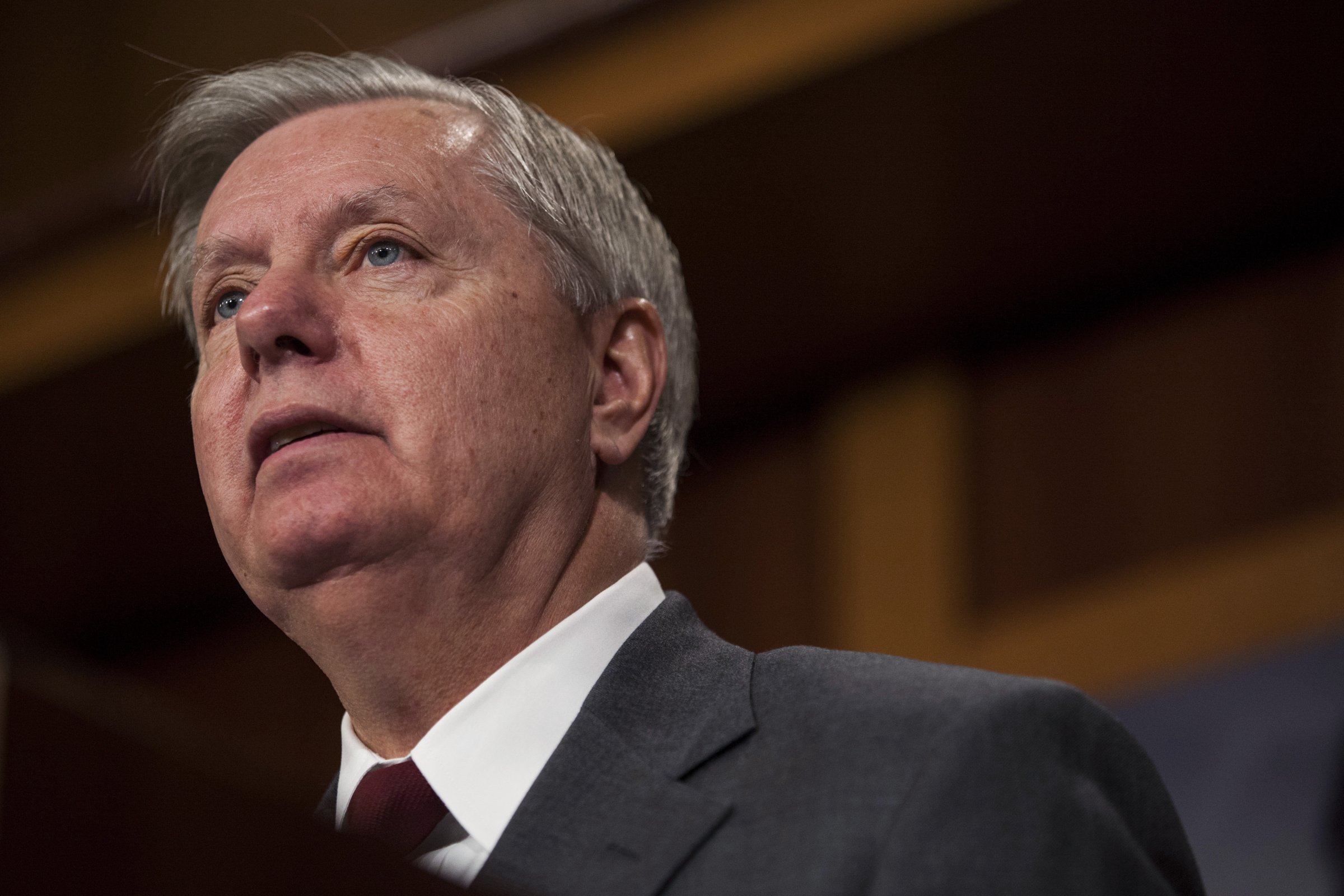
Sen. Lindsey Graham endorsed a “price on carbon” to fight climate change, breaking with much of the Republican Establishment.
Speaking at a climate change conference held by former Secretary of State John Kerry at Yale University, the South Carolina Republican called for a “price on carbon,” saying he would take the idea to the White House for consideration.
“I’m a Republican. I believe that the greenhouse effect is real, that CO2 emissions generated by man is creating our greenhouse gas effect that traps heat, and the planet is warming,” said Graham. “A price on carbon—that’s the way to go in my view.”
Graham said he is working Sen. Sheldon Whitehouse, a Rhode Island Democrat, on legislation. Despite the statement, any significant global warming legislation would meet near-certain failure in the Republican-controlled Congress.
Still, the announcement makes Graham part of an increasingly vocal contingent of Republicans on Capitol Hill bucking their party along with 28 Republican members of a bipartisan climate change caucus (though the group has not endorsed a carbon tax or anything close to it).
Another group of prominent Republican elder statesmen, including former secretaries of State James Baker and George P. Shultz and former Treasury Secretary Hank Paulson, offered a proposal earlier this year for a carbon tax and dividend that would pay returns to taxpayers.
Graham has previously pressed for significant legislation to address climate change, working in 2010 with then-Sens. Kerry and Joe Lieberman of Connecticut on cap-and-trade legislation. But Graham’s efforts on the issue were placed on the back burner after his bipartisan push faltered and the issue became increasingly toxic for Republicans in Washington. Graham called for climate change legislation during the 2016 election, but did not mention a price on carbon explicitly.
Sen. John McCain also delivered recorded remarks calling for the federal government to act on climate change Tuesday. “I believe it is our responsibility to safeguard our environment and protect the planet,” he said. “Climate change is real and requires pragmatic problem-solving to address.”
More Must-Reads From TIME
- The 100 Most Influential People of 2024
- The Revolution of Yulia Navalnaya
- 6 Compliments That Land Every Time
- What's the Deal With the Bitcoin Halving?
- If You're Dating Right Now , You're Brave: Column
- The AI That Could Heal a Divided Internet
- Fallout Is a Brilliant Model for the Future of Video Game Adaptations
- Want Weekly Recs on What to Watch, Read, and More? Sign Up for Worth Your Time
Write to Justin Worland / New Haven, Conn. at justin.worland@time.com